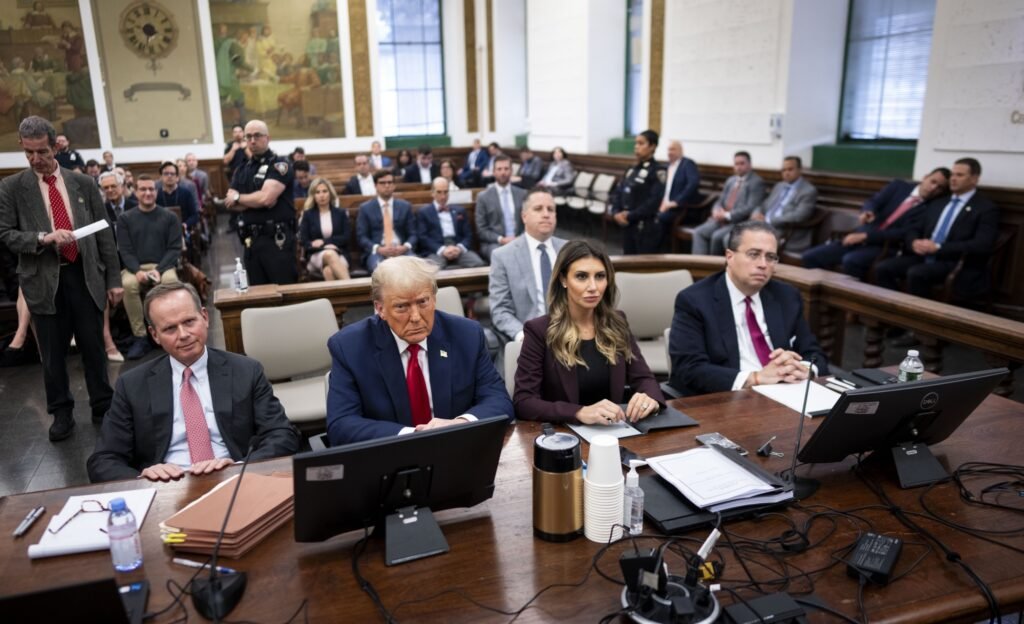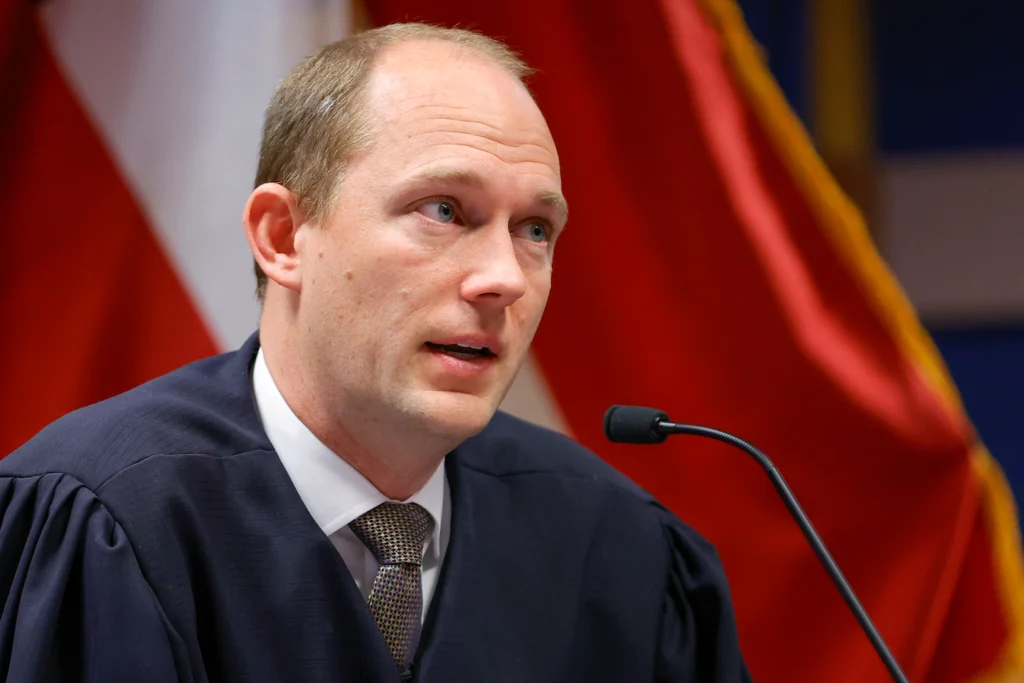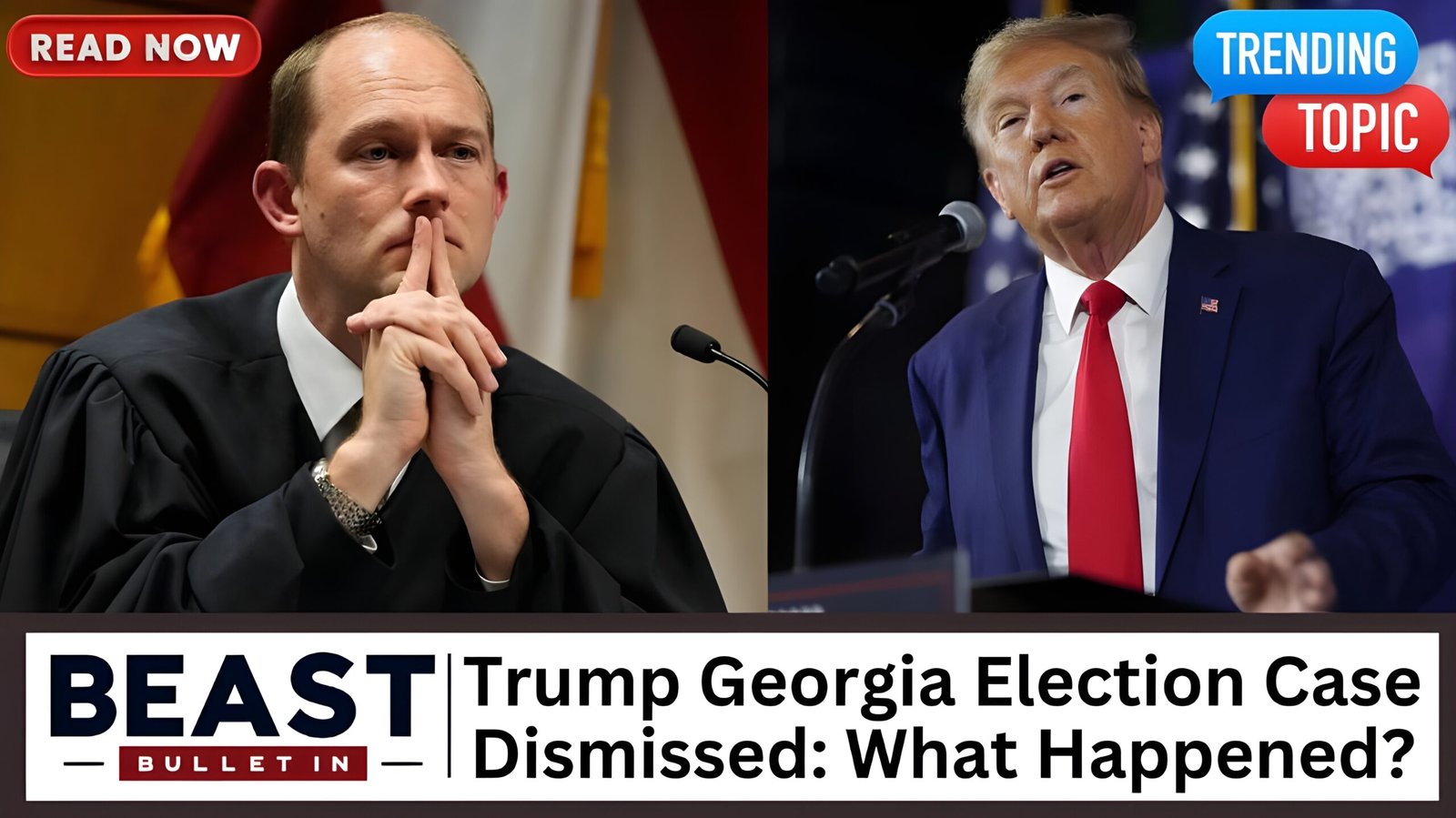You might have seen the headlines that a federal judge dismissed yet another of former President Trump’s lawsuits challenging the 2020 election results. This one was attempting to overturn Georgia’s election specifically. What exactly happened here? Why did the judge toss out the case? Was there really no evidence of fraud like Trump claims? Let’s break down this latest election lawsuit loss for the former President and see what it might mean going forward. Strap in, because the details get a little complicated, but we’ll walk through it step-by-step.
Overview of Trump Georgia Election Case Lawsuit
The Case Against Trump and Allies
In August 2023, a grand jury in Fulton County, Georgia indicted former President Trump and 18 allies for interfering in the state’s 2020 election. Some of the charges against Trump and his associates were recently dismissed, but the case is still ongoing.
What Led to the Indictments?
After losing Georgia in 2020, Trump made baseless claims of widespread voter fraud and pressured state officials to overturn the results. He even called Georgia’s secretary of state and governor urging them to “find” enough votes to declare him the winner.
The Phone Calls in Question
Trump’s phone calls with Georgia officials were recorded and revealed by the Washington Post. In the calls, Trump threatened legal consequences if the officials did not comply with his demands. He also repeated debunked conspiracy theories about illegal votes and election rigging in Fulton County.
What Happened in Court?
Trump’s attorneys filed a motion to dismiss the case, arguing that the grand jury was illegally constituted. A Fulton County judge agreed and dismissed some of the charges. However, the district attorney can still re-present evidence to a new grand jury. Trump’s lawyers have vowed to appeal, but legal experts say the remaining charges are still serious.
What’s Next?
The Fulton County DA has not given up and plans to continue investigating Trump’s election interference. If convicted on the remaining charges, Trump and his allies could face years in prison. However, Trump will likely drag out the case by appealing any unfavorable rulings to higher courts. The saga may continue for months or even years to come.
Key Arguments in Trump Legal Team’s Georgia Election Challenge

Trump’s legal team filed a lawsuit challenging the election results in Georgia, arguing his First Amendment rights protect his rhetoric about election fraud. Trump’s Conduct is Protected Speech Trump’s lawyers claim his comments about election fraud and irregularities are protected free speech under the First Amendment. They argue the lawsuit against Trump for attempting to overturn the election violates his right to express opinions about the election’s legitimacy.
No Evidence the Speech Caused Harm
The legal team insists there is no evidence Trump’s comments caused any harm or illegal behavior. They claim his speech is protected unless it incites imminent lawless action, which they argue did not happen here. The lawyers point out that the Capitol rioters who cited Trump’s rhetoric as motivation for their actions are responsible for their own criminal behavior.
Lawsuit Aims to Censor Dissent
Trump’s team argues the Georgia election lawsuit aims to censor dissent and discourage open debate about the election. They claim it is an attempt to silence those with opinions contrary to the official government stance on the election by labeling their speech as criminal. The lawyers argue this violates the democratic principles of free exchange of ideas and open debate.
Trump Believed Fraud Claims Were True
Finally, Trump’s lawyers assert that he genuinely believed there were issues with the integrity of the Georgia election that warranted investigation and discussion. They argue that voicing concerns one believes to be valid, even if later proven unfounded, is not illegal or unethical. The legal team claims Trump had reason to think there were irregularities in the Georgia vote, even if his concerns were ultimately found to lack merit.
The key question is whether Trump’s rhetoric and legal challenges crossed the line from protected free speech into illegal or unethical conduct. The outcome of this case could have significant implications for the limits of permitted political speech.
Judge’s Ruling on Trump’s Georgia Election Case

AP/ALEX SLITZ
To say former President Trump faced an uphill battle in Georgia would be an understatement. His legal team filed a lawsuit alleging election fraud and interference, but Fulton County Judge Scott McAfee dismissed six of the 13 counts, dealing a major blow to Trump’s case. ###Lack of Evidence
The judge ruled that several counts lacked enough details to move forward. Claims of ballot stuffing, double voting, and votes cast by ineligible voters were thrown out due to a lack of evidence. Trump’s team failed to provide specifics about who, what, where, and when these alleged infractions occurred. ###Denied Motion to Dismiss
However, the judge didn’t grant the full dismissal Trump’s team sought. Four counts alleging improper ballot counting and inadequate election security will proceed to trial. The judge found enough details in these claims to merit further review.
What’s Next?
With nearly half the case dismissed, Trump faces an even steeper climb to overturn Georgia’s election results. His legal team will have to present compelling evidence to support the remaining counts—a difficult task given their failure so far. The case highlights the need for concrete proof of wrongdoing rather than broad, unsubstantiated allegations.
For Trump supporters holding out hope the election results could still change, the judge’s ruling deals a major setback. Biden’s victory in Georgia has been reaffirmed in several recounts and audits. This latest court decision further confirms the integrity of the state’s election system.
Unless Trump’s legal team can pull a rabbit out of their hat in the trial, it seems the president’s attempt to challenge the election in Georgia has reached the end of the road. The state that went blue for the first time in decades appears determined to stay that way.
Responses to Dismissal of Trump’s Georgia Lawsuit
Trump and his supporters expressed outrage at the dismissal, calling it unfair and politically motivated. However, legal experts say the judge’s decision was unsurprising given the lack of evidence.
Trump Lambasts ‘Unfair’ Ruling
In a statement, Trump railed against the “unfair” ruling, claiming that it “only emboldens those who choose to commit voter fraud.” He vowed to appeal the decision, signaling this legal battle may continue for the foreseeable future. Trump’s loyal base echoed his sentiments, accusing the judge of bias and the prosecutors of conducting a “witch hunt.”
Prosecutors Welcome Chance to Argue Appeal
On the other side, prosecutors welcomed the opportunity to argue their case in front of an appeals court. They believe the evidence clearly shows that Trump and his allies attempted to interfere in Georgia’s election, and an appeal will allow them to reiterate the merits of their case. While dismissals of some charges were disappointing, prosecutors said they remain confident in the overall case against Trump and his associates.
Legal Experts Not Surprised
According to legal analysts, the judge’s ruling aligns with standard legal procedure. Given the high bar for dismissing charges outright before a trial, the lack of a slam-dunk reason to drop all counts against Trump made the dismissal of only some charges unsurprising. The appeal also gives prosecutors a chance to make their full case for why the remaining charges should be tried.
While passions run high on both sides of this issue, the legal process appears to be proceeding as expected. Trump and his supporters will continue to protest his perceived persecution, while prosecutors remain determined to hold Trump accountable for unlawful election interference. Unless new evidence arises, the eventual outcomes may do little to sway public opinion in an already deeply divided nation.
What’s Next? Implications of the Georgia Case Dismissal
The dismissal of Trump’s election fraud case in Georgia creates uncertainty over what may come next. While the former president’s legal team plans to appeal the ruling, the outcome is unclear. If the appeal is denied, Trump will face limited options to further contest the election results.
More Court Battles Ahead?
Trump’s legal team argued the election charges violated his First Amendment rights to free speech. If their appeal of the dismissal is accepted, the case may drag on for months more in the courts. However, most legal experts think the odds of a successful appeal are low given the lack of evidence to support claims of voter fraud.
Damaged Reputation
The failed legal challenges have undermined Trump’s reputation and credibility. His repeated unproven claims of election fraud have been dismissed in over 60 court cases across multiple states. While his most ardent supporters still back the claims, others see the former president as damaging American democratic institutions.
Focus Shifts to 2022 and 2024
With limited options left to overturn the 2020 election, Trump and his allies may shift focus to the 2022 midterms and 2024 presidential election. However, their “big lie” about 2020 risks reduced trust in future elections and voter participation. Trump also faces uncertainty over whether he will remain the dominant force in the Republican party going forward.
Lessons for Future Elections
The Trump election cases highlighted vulnerabilities in the U.S. election system, as well as the potential for candidates to exploit those weaknesses. However, the outcomes also showed the resilience of democratic checks and balances. Reforms like expanded early voting and enhanced security measures aim to bolster trust and access in future elections.
The implications of the Georgia case dismissal remain complex and unfolding. While Trump’s options to overturn 2020 narrow, the impacts on American democracy and politics continue to reverberate. The coming months and years will reveal the extent of the lasting damage, or opportunity to heal and strengthen the nation’s democratic foundations.
Conclusion
So there you have it. Trump’s legal team tried to overturn Georgia’s election results, but their case got thrown out pretty quickly. The judge found no evidence of the widespread fraud that Trump claimed. This was just one more defeat in Trump’s failing effort to cling to power after losing the 2020 election. At some point, he’ll have to accept that he lost fair and square. But don’t expect that to happen anytime soon. For now, Trump will likely keep searching for ways to cast doubt on the election, even as Biden prepares to take office. The Georgia case may be over, but Trump’s fight against the election results seems far from finished. We’ll have to wait and see what happens next.






















